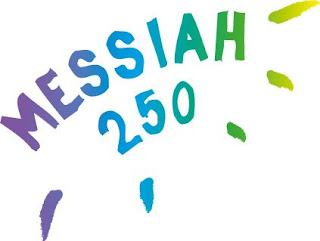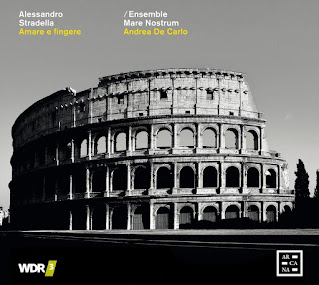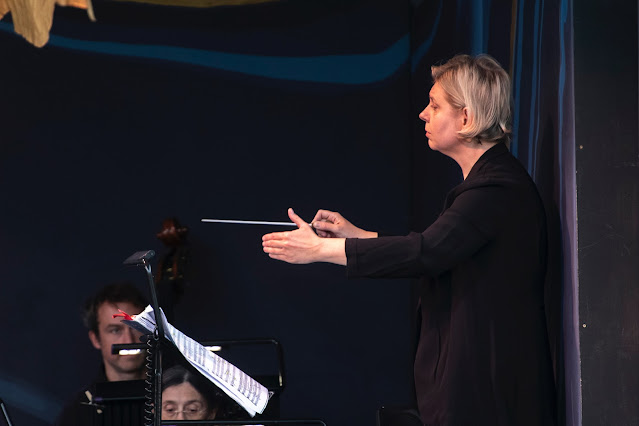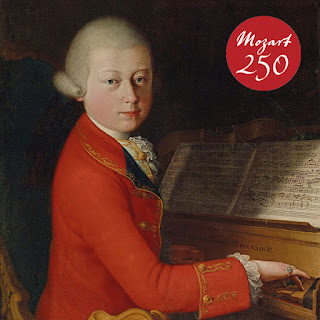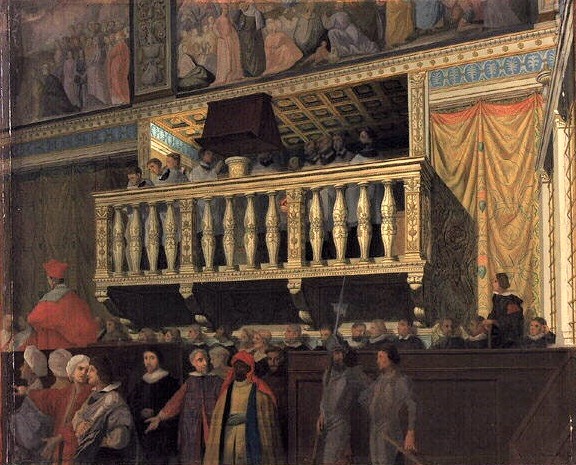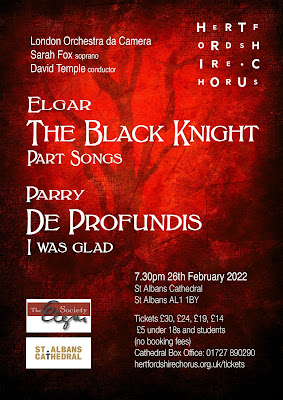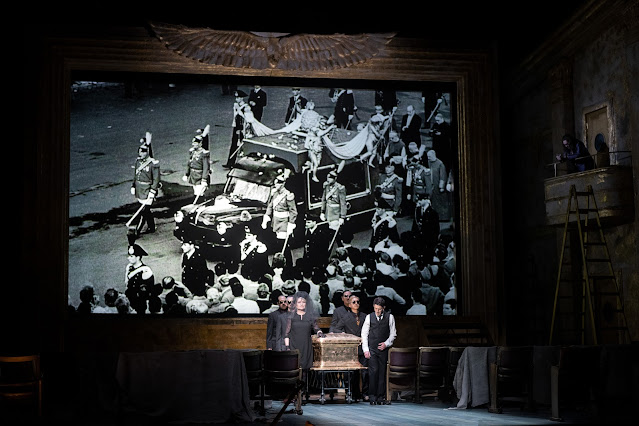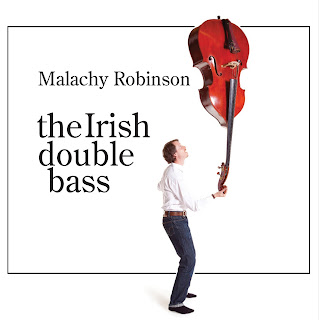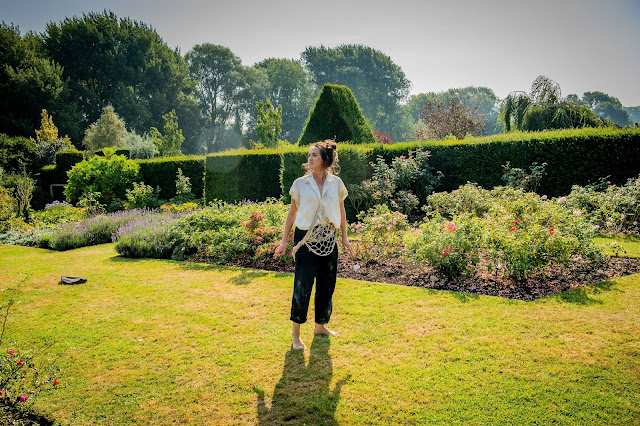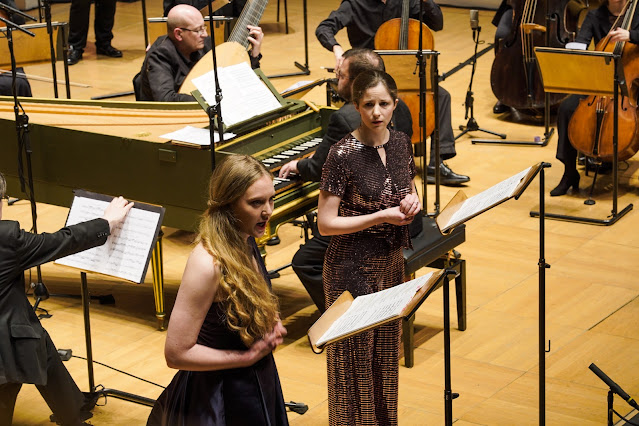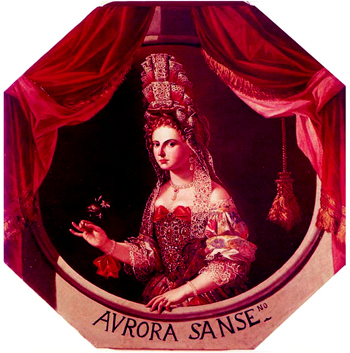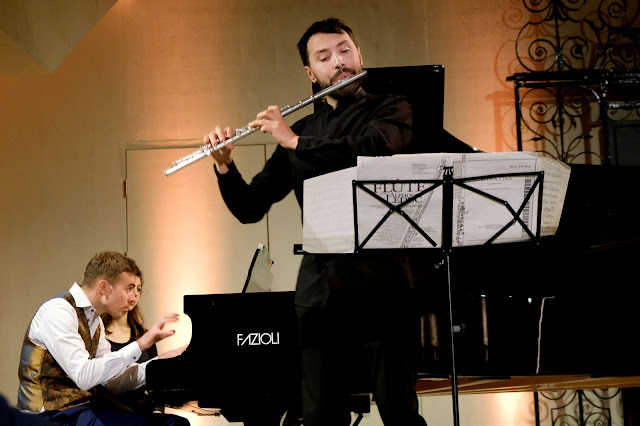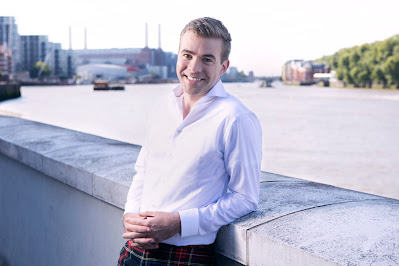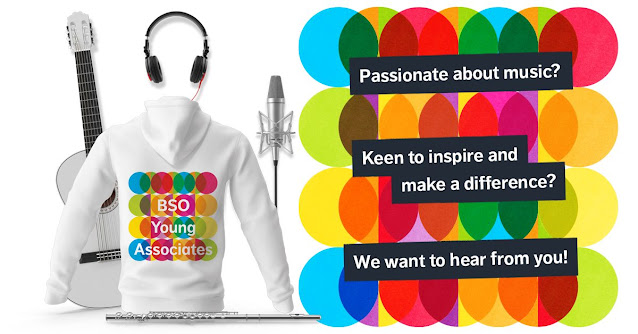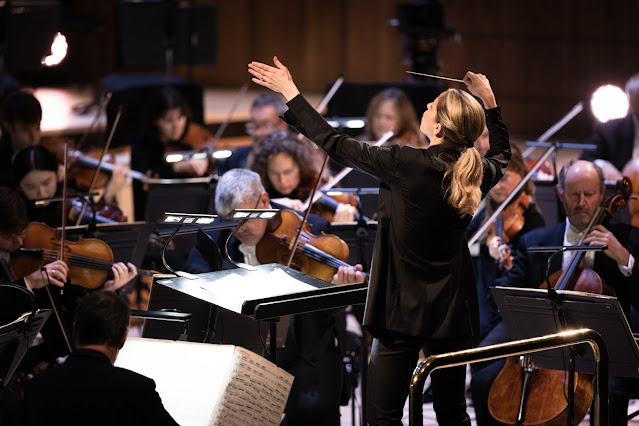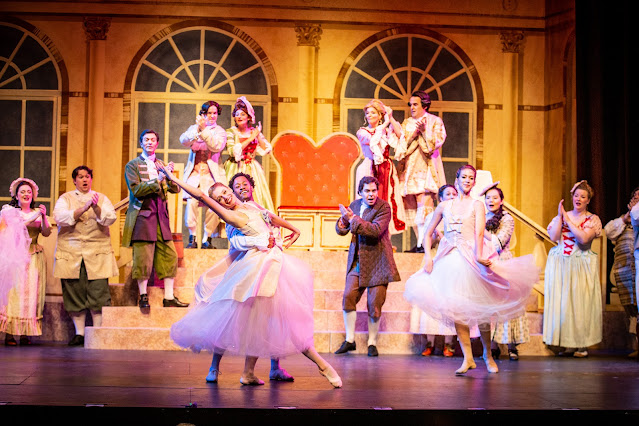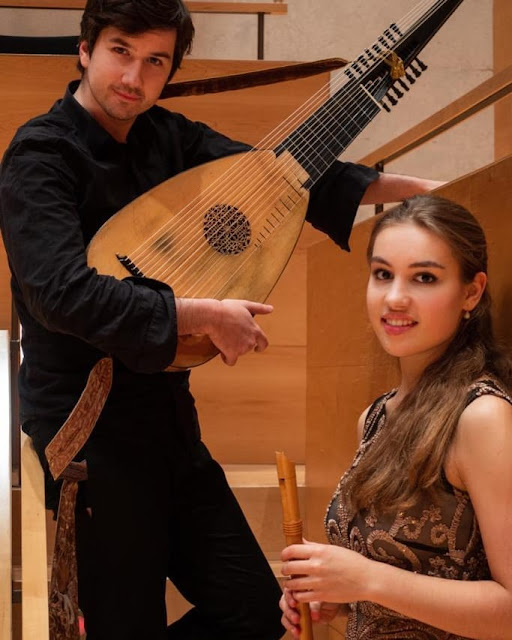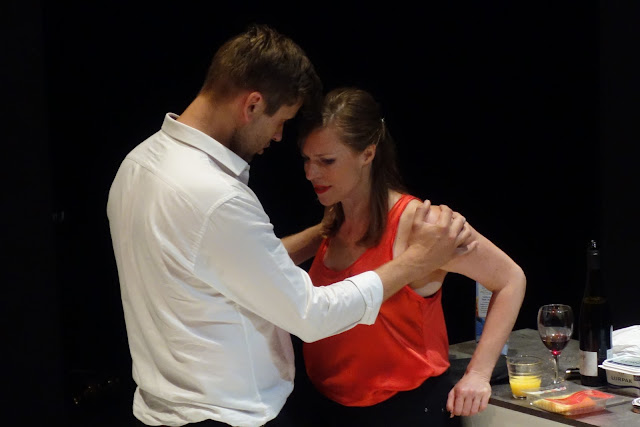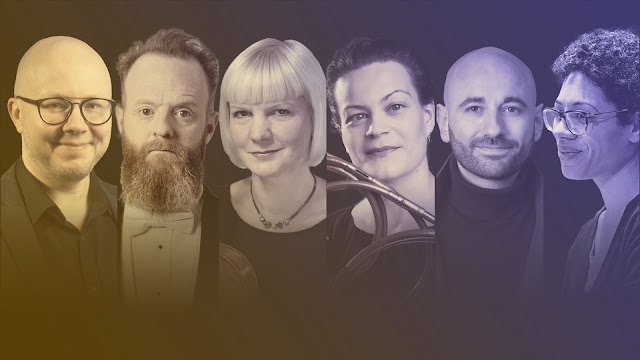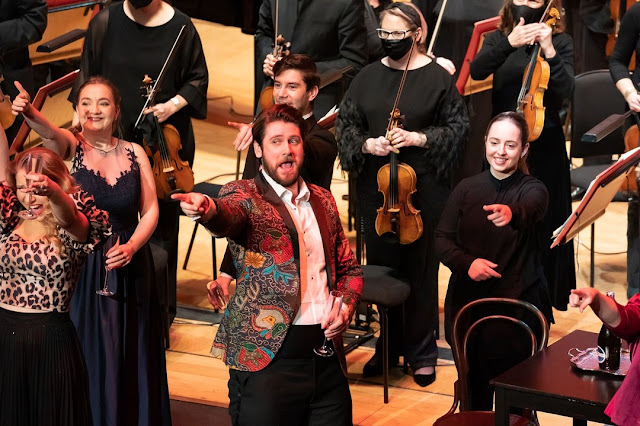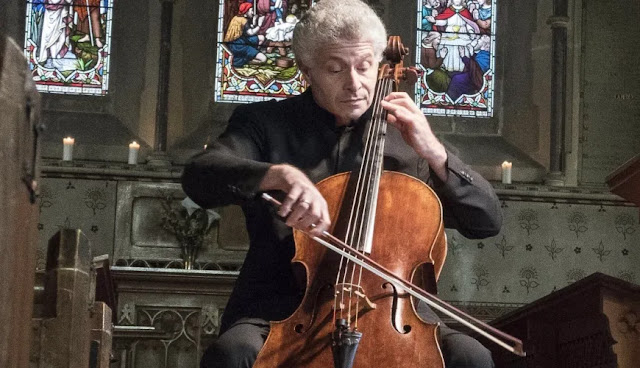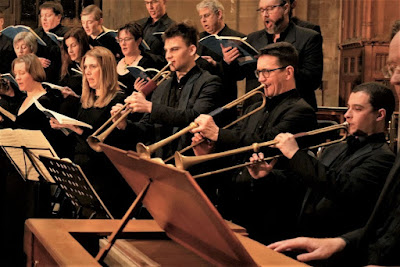 |
| Manchester Camerata's Music Cafe at the Monastery in Gorton (Photo Duncan Elliott) |
Two Manchester ensembles are celebrating new collaborations and new ways of presenting music. The Manchester Collective, co-founders Adam Szabo (Chief Executive) and Rakhi Singh (Music Director), has announced further plans for 2022, whilst the Manchester Camerata, music director Gábor Takács-Nagy, is celebrating its 50th anniversary with a whole season of events and collaborations.
Manchester Collective will be continuing its collaboration with South African cellist and composer Abel Selaocoe in The Oracle, musical event that featuring stories and original compositions by Selacoe, alongside masterpieces by Jean-Philippe Rameau, Igor Stravinsky and Mica Levi.
Another continuing collaboration is with soprano Ruby Hughes, and The Savage Parade will feature a new song cycle by Edmund Finnis alongside music by Barbara Strozzi and Benjamin Britten. A Little Requiem features music by Henryk Górecki's Kleines Requiem für eine Polka and Ferrucio Busoni's Berceuse alongside music by Aaron Copland and Alex Groves. Other composers in the Manchester Collective's season include Arvo Pärt, Frédéric Chopin, Caroline Shaw, Hannah Peel, and Lyra Pramuk.
As well as performing at Stoller Hall, Wigmore Hall and Bridgewater Hall, the ensemble performs well outside traditional concert venues and there are shows in underground music venues in Salford, Birkenhead and Bristol, as well as a restaurant part of the Collective’s evolving partnership with chef Sam Buckley.
Full details from the Manchester Collective's website.
 |
| Manchester Collective at the Southbank Centre (Photo Alan Kerr) |
Manchester Camerata's current resident artist is saxophonist Jess Gillam and their concerts with her include the ensemble's debut at Wigmore Hall where the programme includes Glazunov's Saxophone Concerto alongside Daniel Kidane's Be Still, a work the ensemble commissioned last year. Other anniversary celebrations include the sixth volume of Manchester Camerata and Gábor Takács-Nagy's Mozart, Made in Manchester series on Chandos Records, the world premiere of a new work by Alex Ho as part of the Royal Philharmonic Society Composer programme, which will be part of an intergenerational performance by the people of Gorton, Manchester, where the ensemble is based.
New collaborations sees the Manchester Camerata joining Manchester-based music duo Space Afrika for a performance of Steve Reich’s Music for 18 musicians, working with Manchester-based composer, producer and DJ Afrodeutsche as well as cabaret star Le Gateau Chocolat. More conventionally, there will be a performance of Bach's St John Passion conducted by Gregory Batsleer with Huddersfield Choral Society, and the ensemble performs with Nevill Holt Opera in June for Puccini's La Boheme.
Following its move to The Monastery in Gorton East Manchester, Manchester Camerata continues to embed itself in the local communities there through its participant-led music-making programme.
Full details from the Manchester Camerata's website.

